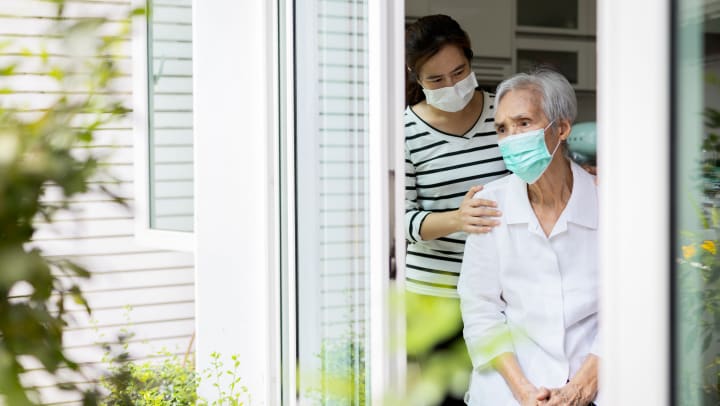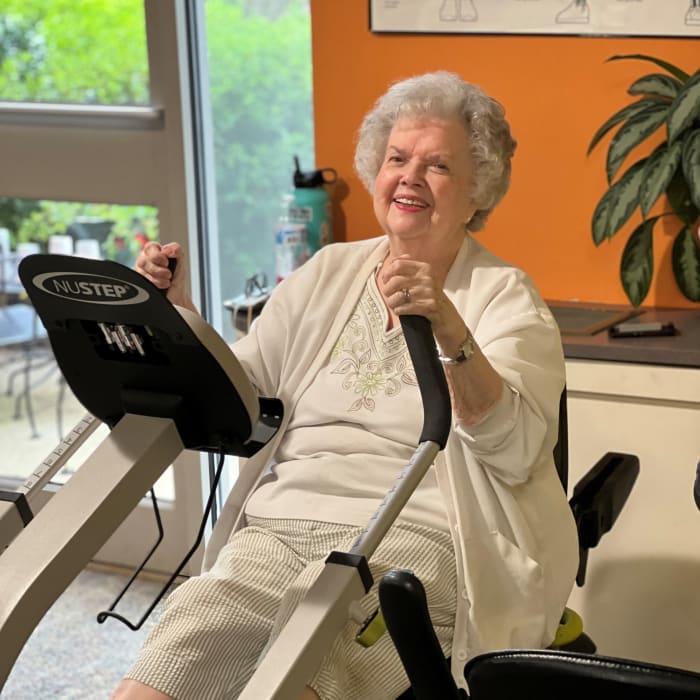Dealing with Pandemic Depression
Even when times are normal, everybody feels sad and tired occasionally. And right now, many of us are feeling especially down due to the coronavirus pandemic. We’re all more isolated and stressed than usual, and many of us are dealing with health concerns and abrupt changes to our daily routines. Even going to the grocery store can be mentally draining! So, it’s only natural to be down in the dumps. But at what point does feeling down become full-fledged depression?
Depression: A growing crisis
Depression has become significantly more common in the wake of the coronavirus. That’s a serious issue, as depression not only affects a person’s mental health, but has also been linked to increased pain sensitivity, a higher risk of heart attack and a weakened immune system.
Keep an eye out for depression by learning the symptoms. Talk to your doctor if you experience some of these symptoms most of the day, nearly every day, for at least two weeks:
• Persistent sad, anxious or empty mood
• Hopelessness or pessimism
• Irritability
• Feeling guilty or worthless
• Loss of interest or pleasure in hobbies and activities
• Decreased energy
• Moving or talking more slowly
• Feeling restless or having trouble sitting still
• Difficulty concentrating, remembering or making decisions
• Problems with sleeping
• Appetite and/or weight changes
• Thoughts of death or suicide
• Aches, pains, cramps or digestive problems without a clear physical cause
What to do about depression
The most effective treatments for depression are psychotherapy, medications or a combination of the two. But there are steps you can take to help prevent and lessen depression:
• Distract yourself. Depression can encourage a loop of negative thoughts in your mind. Focusing on something else can bring you out of your head and add additional meaning and purpose to life. Try learning a musical instrument, writing a novel or growing a garden.
• Have a routine. Staying up late, skipping meals and generally avoiding self-care only gives your mind more reasons to feel down. Having a more structured day that includes time for self-care can help reduce stress and benefit your physical health.
• Be grateful. Even when there are plenty of reasons to be depressed, there are still reasons to be grateful if you look. It can be as simple as a beautiful sunset or a roof over your head. Or maybe it’s a TV show that makes you laugh or an outfit that makes you look really good. Maintaining a gratitude journal has been found to help people sleep better, lower stress and improve relationships.
• Get moving. Exercise can help improve physical and mental health. While depression can make it hard to get started, all you need is five minutes of activity here and there. Ideally, you should aim for 150 minutes of moderate-intensity exercise each week.
Get help for depression
If you’re feeling sad or depressed, talk to your doctor about it. Check in with your friends and neighbors, too. Talking about how you’re feeling can help you realize that you’re not alone, and it’s possible to find solutions so you can start feeling better. Many health clinics offer virtual visits so you don’t even have to leave home to get help for depression.






